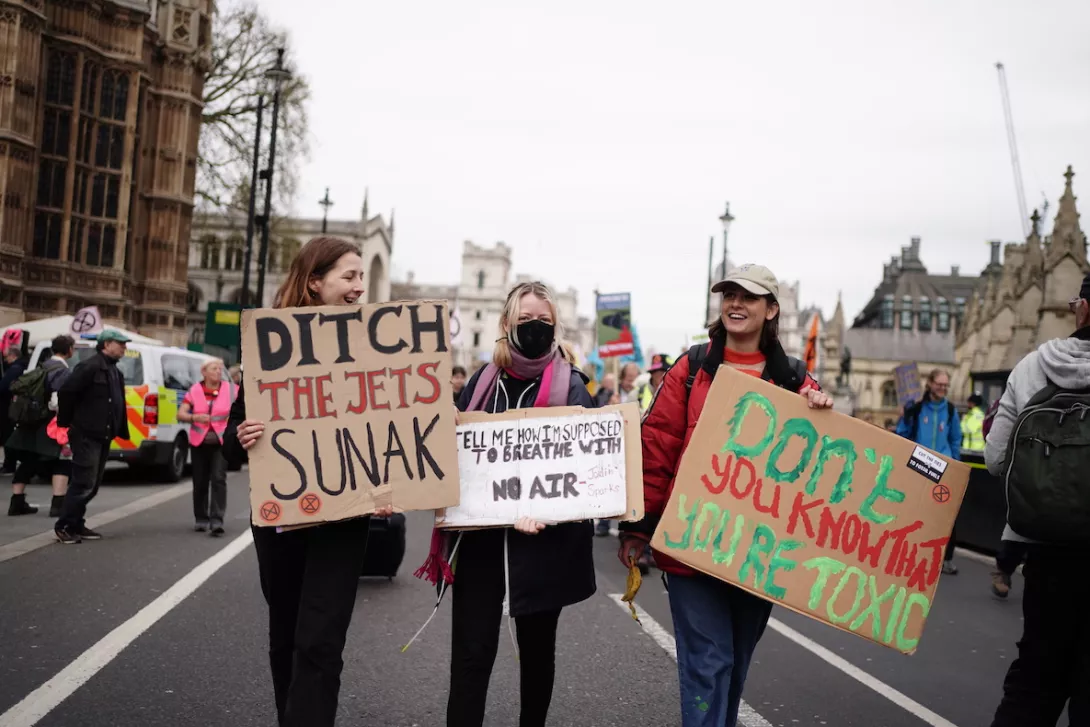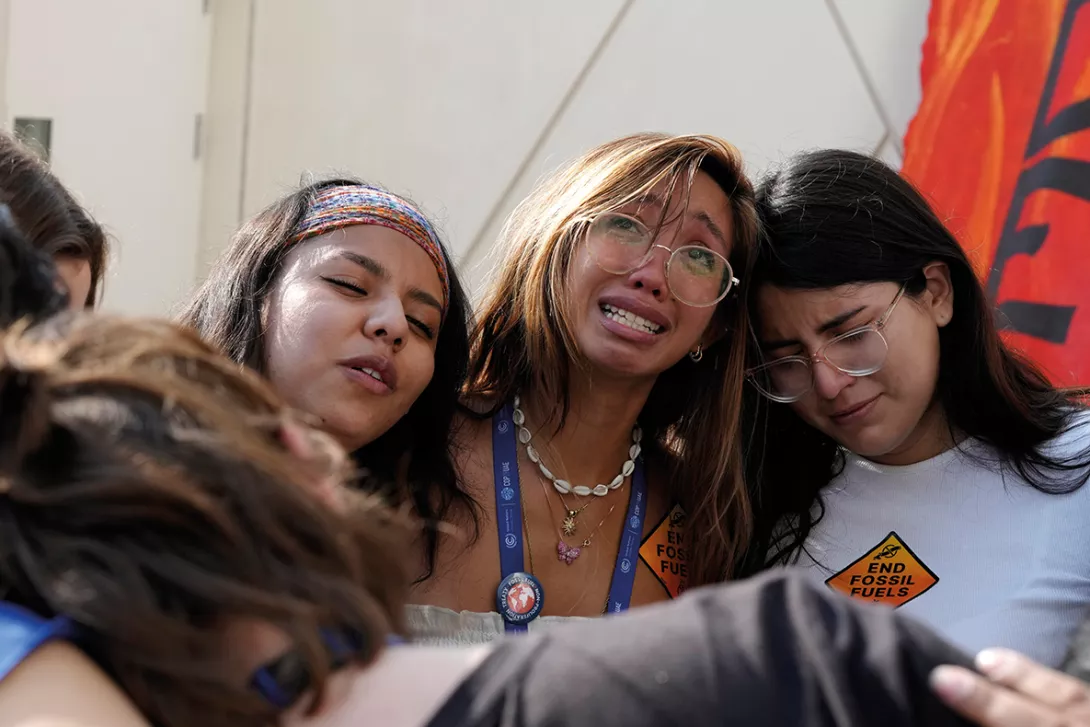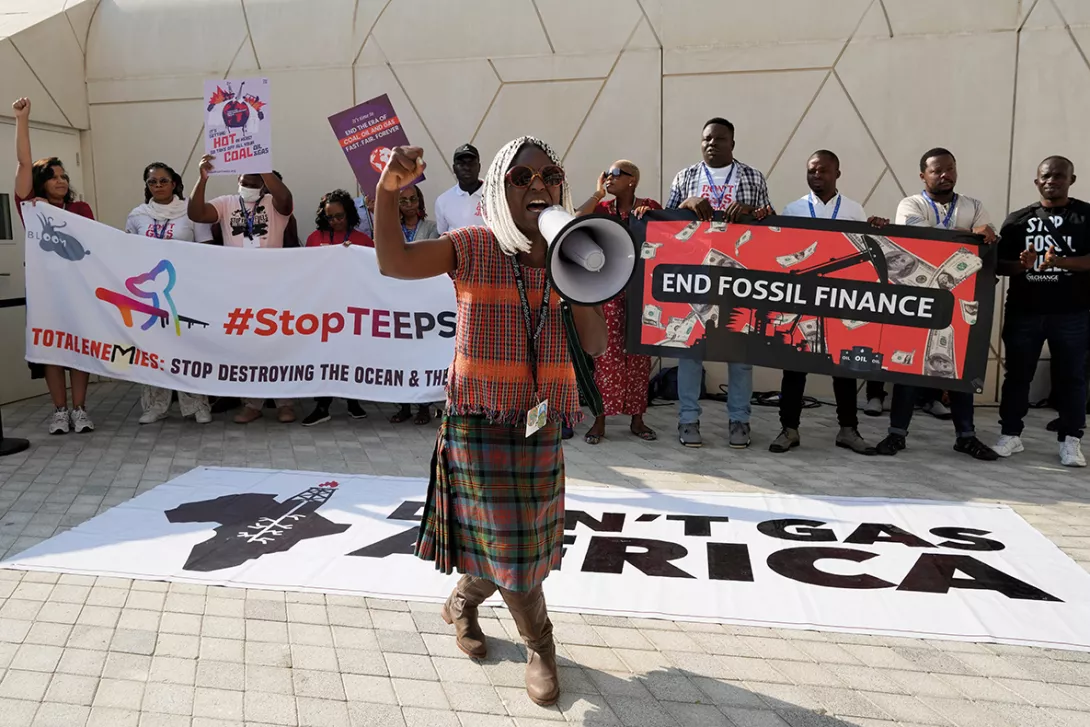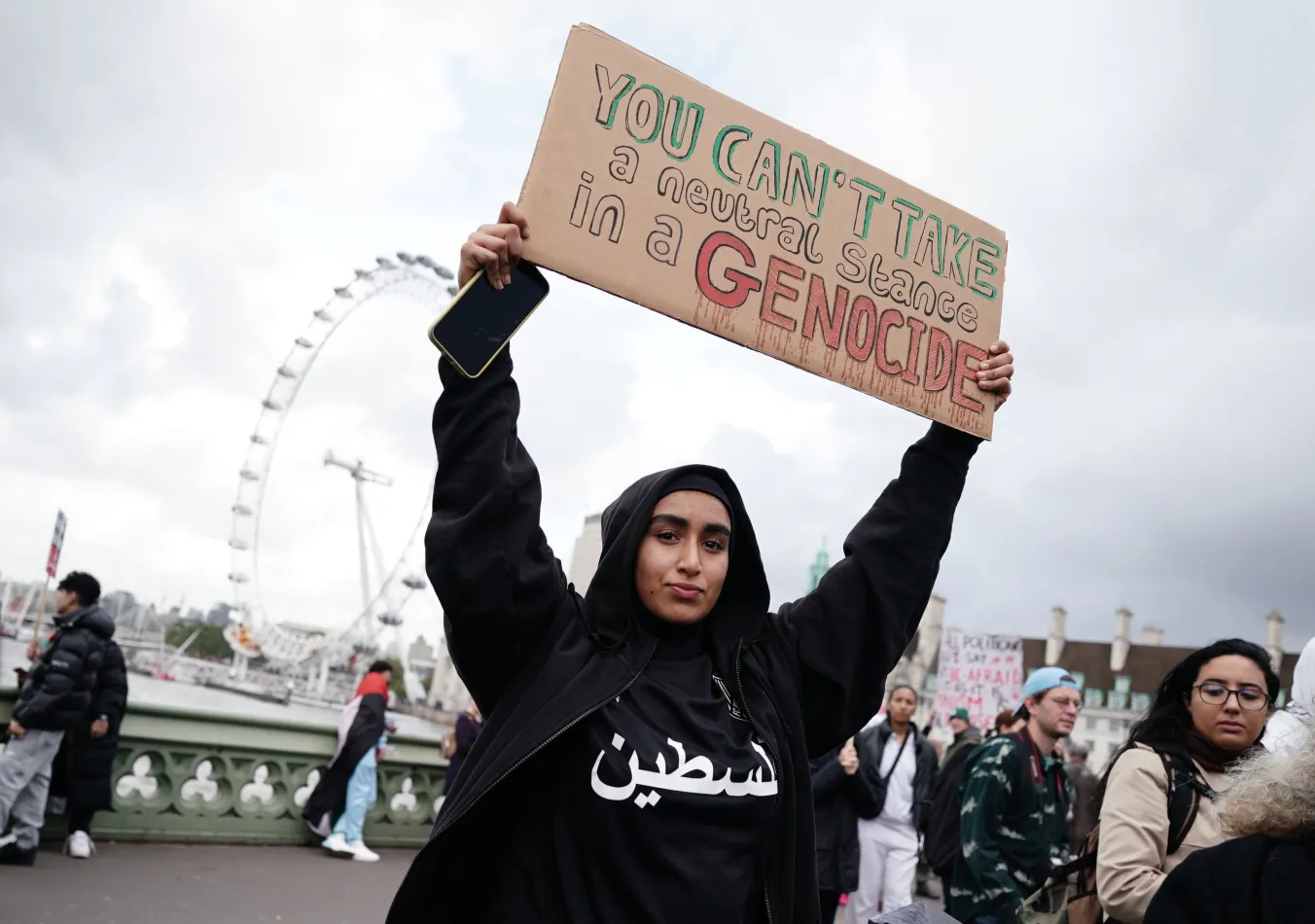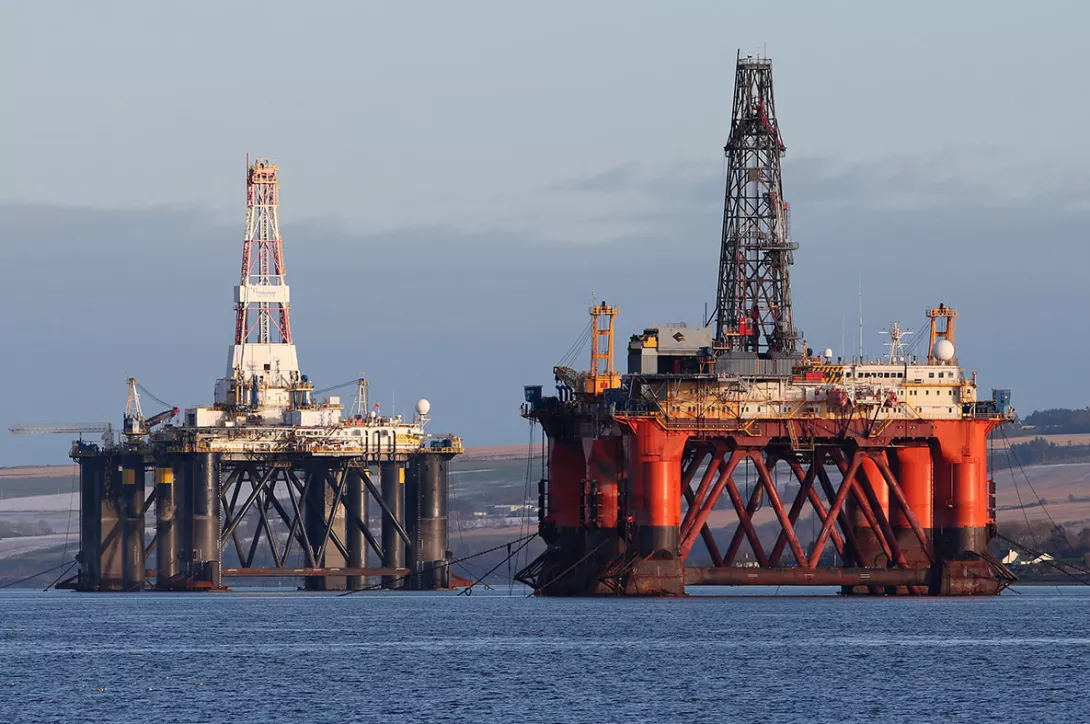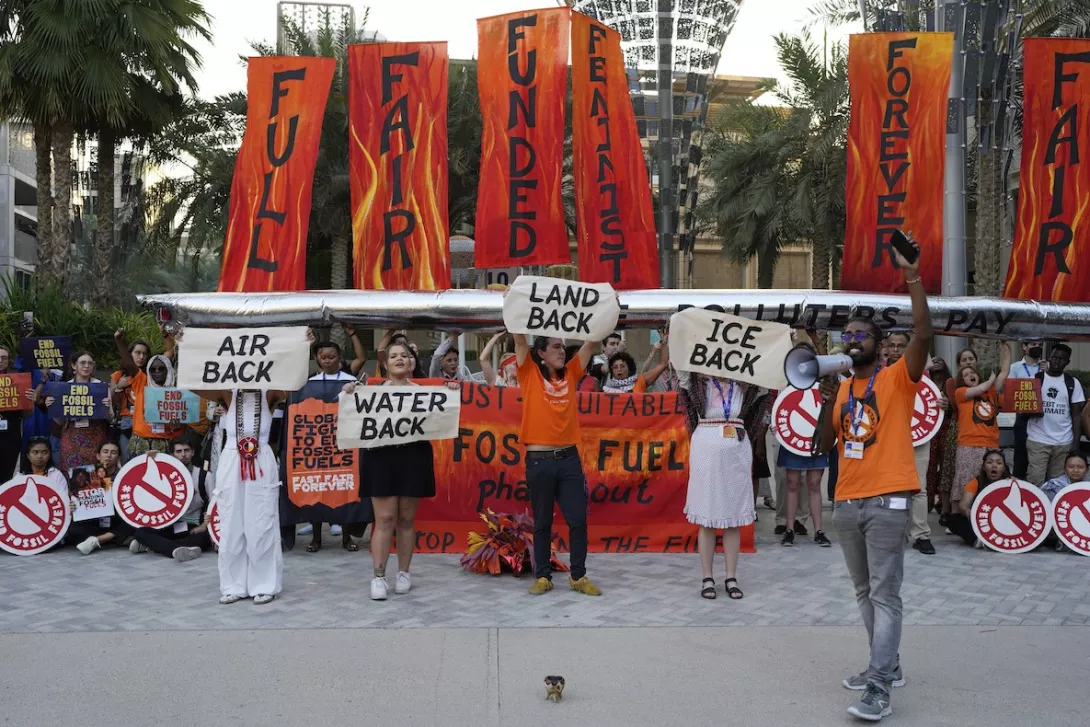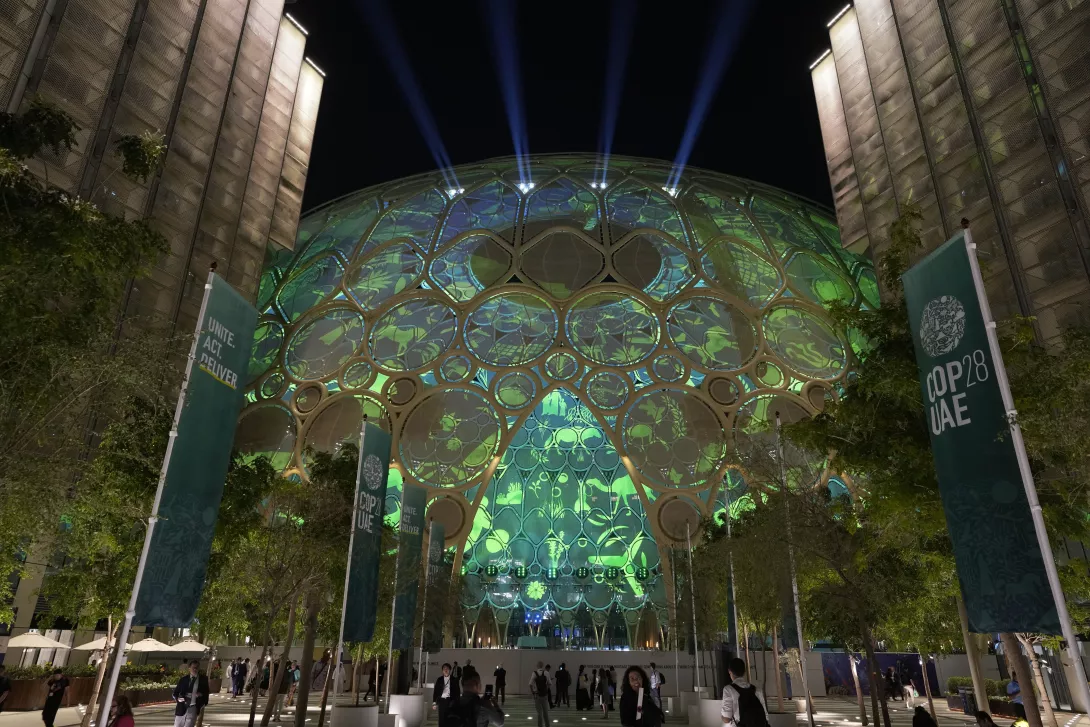
WATCHING the glitzy opening of the Cop28 meeting in Dubai, one could not help but be struck, whatever it may have looked like when the first Conference of the Parties took place in 1995, by how performative it has all become.
It is surely part of the performance that the current meeting is being held in a petro-state like the United Arab Emirates and that its chair is the CEO of that country’s state-owned oil company; a veneer of inclusivity to suggest that we are “all in this together” — while BBC reports suggest that the host country intends to use the conference to make oil and gas deals.
King Charles delivers one of the opening speeches, while the Prime Minister flies to Dubai fresh from having, in the pursuit of votes at the next general election, scaled back his government’s plans on reaching net zero. The self-congratulatory applause on the first day at last to put some figures on funding loss and damage reparations — a principle agreed a year ago on which nothing has happened since.
As the great and the good rub shoulders with each other and with the fossil fuel companies who have become an increasing presence at Cop meetings, it’s hard not to wonder who speaks for the “little people” — who speaks for us?
It’s an important question, because those who suffer most from environmental destruction and climate change are not the petro-states, the fossil fuel companies or the monarchs — those who have most, but, both between countries and within countries, it is those who have least who bear, disproportionately, the effects and the burden of unfolding climate disaster.
Climate change and social inequality cannot be separated. Globally, nationally and individually it is those in the in the richest parts of the world who historically have produced and currently contribute the highest levels of greenhouse gas emissions, but are cushioned from their effects, enabling them to continue with “business as usual” while meeting once a year to wring their hands and quietly sabotage any genuine attempt at meaningful action on climate change.
A report, the result of work by Oxfam, the Stockholm Institute together with the Guardian newspaper and published last month, showed that the richest 1 per cent of humanity accounts for more carbon emissions than the poorest 66 per cent.
A group of just 77 million people paid over £112,500 a year were responsible for 16 per cent of all CO2 emissions in 2019 — enough to cause 1.3 million deaths from the effects of heat, using the US Environment Protection Agency “mortality cost” of 226 excess deaths for every million tonnes of carbon.
The carbon footprint of the richest 0.1 per cent is 77 per cent higher than an upper level required to achieve the 1.5°C limit on post-industrial global warming agreed in the Paris Accord, with significant contributions from the use of super-yachts, private jets, mansions and space flights.
The super-rich have significant shareholdings in highly polluting companies and wield huge political power through media, social networks, lobbying and access to senior politicians — themselves, in many cases, members of the richest 1 per cent.
The report adds that suffering the effects of carbon emissions disproportionately affects people living in poverty, marginalised ethnic communities, migrants and women and girls where these groups are more likely to work outside or live in vulnerable homes and are less likely to have access to social protection or insurance from economic and physical risk.
Developing countries suffer 91 per cent of deaths related to extreme weather. It would take someone in the bottom 99 per cent about 1,500 years to produce as much carbon as the richest billionaires do in a year.
We can be unsurprised by some of this data; the Oxfam report perhaps confirms a picture of climate change with which we are not unfamiliar.
But while it may not be news that the global North pollutes at the expense of the global South, Climate Change and Social Inequality, a 2017 UN Department of Economic and Social Affairs report by S Nazrul Islam and John Winkel, showed that climate change-driven social inequality exists not just at a global level, but also within countries.
Islam and Winkel found within countries a cycle where initial inequality causes disadvantaged groups to suffer disproportionately from climate change — which then results in greater inequality.
There are three channels through which inequality as the aggravating effect of climate change arises — increased exposure of disadvantaged groups to the effects of climate change, an increase in susceptibility to damage caused by climate change and a decrease in the ability to cope with and recover from the damage suffered.
The inequalities which follow are seen in how they affect by gender, race, ethnicity, religion and age — particularly those with least in terms of assets and income — and result in reduced access to education, healthcare, housing and finance.
They argue for the imposition of a cut-off on individual emissions to reduce inequality, but recognise that this would be difficult where those suffering most have the least access to public decision-making and political power.
Which brings us back to where we started. The lack of access to political power is (with perhaps the exception of Davos) nowhere more on display than at Cop meetings. This may seem counter-intuitive where the meeting is a UN-organised event and where occasionally we see representatives of indigenous peoples and communities speak.
Fossil fuel companies are a growing presence at Cop meetings, where as much business is done behind the scenes as on the floor. But where is the access to power for those who have lost the most and stand to lose much more in the future? If Cop meetings are to effect real, desperately needed change, their voices, above all others, must be heard.
